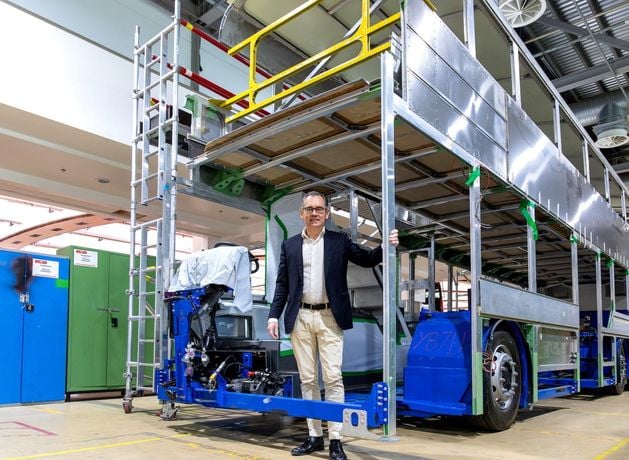Innovation in Motion: Wrightbus Unveils New 6x2 Zero-Emission Bus Line
Key Ideas
- Wrightbus, based in Northern Ireland and Malaysia, introduces a new 6x2 zero-emission bus line, showcasing their commitment to sustainability and innovation.
- The company's CEO, Jean-Marc Gales, hails the new product as a triumph of engineering, highlighting the team's dedication to creating a zero-emission vehicle without compromising on passenger capacity.
- With orders already lined up for the Far East and Europe, Wrightbus is set to expand its market reach, with plans to introduce the demonstrator model in Hong Kong and explore sales opportunities in Singapore, Australia, New Zealand, and the UK.
- The company's recent financial investment and growth initiatives, including new facilities and staff expansions, underscore its commitment to meeting customer demand and contributing to the wider economy through job creation and support of the supply chain.
The renowned bus manufacturer, Wrightbus, has unveiled its latest innovation with the production of a new 6x2 zero-emission bus line in Northern Ireland and Malaysia. The company, based in Ballymena, introduced the Streetdeck model as part of its record-breaking year, which also saw the launch of electric midi-buses and next-generation hydrogen and diesel coaches. CEO Jean-Marc Gales praised the engineering prowess behind the 6x2 bus, emphasizing its ability to accommodate increased battery capacity while maintaining passenger numbers. Tests will be conducted over the summer, with plans to send a demonstrator model to Hong Kong for a year-long trial. Wrightbus is eyeing market expansion in regions like Singapore, Australia, and New Zealand. The company's commitment to sustainability is evident with over 100 hydrogen buses bound for Germany and a focus on zero-emission solutions in the UK. Financial backing from HSBC UK and strategic investments in staff, facilities, and service centers highlight Wrightbus's dedication to growth and innovation. The company's success story, including its rescue from administration by entrepreneur Jo Bamford in 2019, reflects a positive outlook on the future of sustainable transportation and economic contribution.
